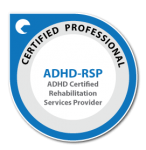

The second quarter of the new school year has begun, and something very predictable is happening: homework refusal. It is such a hot topic that nearly all my clients with ADHD list it as a significant issue in their homes.
Some elementary schools have adopted a no-homework policy. I find that refreshing especially for the kids that struggle nightly. After all, homework is meant to reinforce learning, not to become a battle that makes children dislike school. Whether a school assigns homework or not, being a student is a child’s job. The school should strive to foster a love of learning. If a child or teen is consistently refusing to do any work, whether it’s in the classroom or at home, we need to first figure out why.
I have other blogs, Refusal to Do Schoolwork and ADHD and Homework Issues about digging deep to find the “why” of the refusal. In this article, I am going to share the four executive functioning skills necessary for schoolwork and homework, and one parenting technique to make it all go much smoother.
This executive functioning skill means that your child has a system for organizing each class and its corresponding work. Many children with ADHD find it challenging to develop and maintain organizational systems. If your child’s backpack is a mess, they are going to have trouble locating homework. Many elementary schools require a certain system, whether it’s a 3-ring binder with dividers, or an accordion file or something else. If the child is not filing papers properly, they will get lost or end up “floating” around the backpack. As students advance through the grades, they are often given more freedom to use whatever folders or binders work best for them.
Students should start using an agenda or planner if they are not given a homework page. If they don’t write the assignments down, they won’t know what to do and when. I know it sounds obvious, but I’ve worked with many 5th-8th graders and even older teens who insisted that they could remember what they needed to do. Our brains are not meant to remember lists of novel things, so I encourage everyone to write it down! Even if homework is listed online, they may not have brought home the correct books or materials to complete it, so they must know ahead of time what the work is going to be.
Lastly, assess the space where your child completes homework. Having only the necessary items out and available decreases distractions and fosters efficiency.
Improving organization of their backpack, personal desk space and use of agenda will help your child or teen know what is due and when, where to find it, and what items are needed to complete it.
One thing I hear the most about homework refusal is “it’s going to take foooorrrreeevver!” Kids with ADHD often have difficulty feeling the passage of time, estimating how long things take to do, and structuring their to-do’s in a way that makes sense within the time they have available.
To improve this skill, we begin with estimating how long a piece of homework will take, then setting a stopwatch or timer while doing it. Compare the two and check for a difference. If your child was way off (typically overestimating) help them be more mindful of time passing. With practice, they will understand that, for example, the math sheet will take 20 minutes, reading 3 chapters will take 45 minutes, and writing a journal entry will take 10 minutes. You can use a visual timer if it is not too distracting.
It is also important to write due dates of homework or projects into an agenda or onto a big family calendar. This provides a visual of how many days your child has to complete a specific assignment, so a project or report doesn’t sneak up on them.
This executive functioning skill is responsible for avoiding the opposite pitfall: procrastination. Getting started on something that is challenging or too boring is very difficult for many of us, but especially for kids and teens who have ADHD. Sometimes strengthening the two skills above are enough to overcome the procrastination hurdle. When a child has a strong organizational system, they know what they need to do, and they have the items to do it. When they understand how to feel and manage their time better, they can set themselves up for efficiency.
The next step is simply to begin. If they continue to struggle with beginning, I recommend breaking down tasks into small and manageable chunks. A task that is too big is overwhelming. Tricking the brain into taking that first small step, such as opening the computer, or taking out a folder, is much easier than convincing the brain to turn off a video game and settle in for an hour of homework.
Another tip for helping kids to initiate is to have them choose the time to begin. When given more autonomy and choices, children will often rise to the occasion. One caveat: “never” of “11 pm” are not viable options, so offering a time frame that is acceptable will set you both up for success.
This executive functioning skill is all about follow-through, taking a task to completion, and sticking with it even when it becomes overwhelming or too boring. As imagined, this is difficult for people with ADHD, who may even purposefully look for things to do rather than continue with something that has lost their interest.
The first thing kids and teens should know is what “done” looks like. They need a clear picture of the end result of the task, whether real or visualized. This helps them know that there is an end, and to be able to see the end. This is simple, when “done” is filling in a vocabulary and grammar sheet, or completing all of the math problems. Kids may struggle more when the final project is a poster board or something else with multiple steps. Helping them see the end can be a big help in taking the task to completion.
Some kids need to take breaks to finish a task, while others opt to “power through”, fearing that a break will derail them for good. Use whichever way works for your child, being sure that they can get back on track if they take breaks. Whether they take breaks or try to complete a task in one sitting, I also teach kids and teens to use self-talk to persist. This can sound like “I can do this” or “keep going, almost done”. Some kids like to reward themselves at intervals as a way of self-motivating. (A small reward this way is usually a sweet treat rather than time on their phone or tablet, which is much harder to put back down.) One young client told herself, “You can’t have that piece of candy until you are all the way done!” and that was what she needed to stick with it.
You may be wondering at this point what your part is in all of this. Can you help your child build these executive functioning skills that are going to decrease homework refusal? Yes. That requires scaffolding, which is helping to set them up for success by providing structure and support around them while they practice the new strategies. Just knowing that they have the support of their parents will help to decrease some of the homework refusal.
There is one thing that I have not yet mentioned but will be just as important to homework success as building skills. It is empathy. Often, kids and teens need to hear their parents say things like:
Notice what is not being said:
True empathy is demonstrating understanding. It does not include language that is dismissive, shaming, or even problem solving. If your child wants your help, or your presence, let them come to that conclusion. Pointing out that the clock is ticking rarely has the effect that parents think it will. Becoming emotional or panicky may have the opposite effect of trying to be helpful and motivating.
In the end, kids and teens want to be heard, just like adults do. The best way to show them that we hear them is to reflect back what they are expressing. You do not always need to agree but seeking to understand will immediately decrease the butting of heads that often occurs with homework refusal.
Remember to begin with finding the “why” for homework refusal. This is valuable information! If we don’t know what is getting in the way, it is very difficult to solve the problem.
Next, assess the four executive functioning areas that are most critical for homework success. Help your child create systems for each that will set them up for success.
Finally, demonstrate empathy toward your child’s struggles. Note the language, tone, and emotion you are conveying. And please know that even if you have executed everything I’ve suggested perfectly, you still cannot make another person do something that they are refusing to do. Resorting to threats of punishments or promises of rewards, or both, will not build skills for the future. They may have a temporary effect, but they won’t durably decrease homework refusal. And, they will undo any attempts at empathy if your words are followed by “but do it anyway” or “do it or I’ll take away your phone” or “do it and I’ll buy you something”. I always say that no homework assignment is worth your relationship. If the struggle continues, contact the teachers and school team.
Kids and teens with ADHD will eventually be adults with ADHD and they will need the skills necessary to start and persist through challenging or boring tasks their whole life.
For more information on facilitating executive functioning skill building, check out my new self-paced online program, Strengthening Executive Functioning Skills in Children and Adolescents.




Copyright 2024 © Kids Empowered 4 Life. All rights Reserved.
All information on the Website is presented as informational only and is not a replacement for therapy assessment, diagnosis, intervention, or medical advice. The information provided on the Website is provided “as is” without any representations or warranties, express or implied. Kids Empowered 4 Life assumes no responsibility for errors or omissions that may appear in the Website.